Publications
Articles, publications, books, tools and multimedia features from the U.S. Institute of Peace provide the latest news, analysis, research findings, practitioner guides and reports, all related to the conflict zones and issues that are at the center of the Institute’s work to prevent and reduce violent conflict.
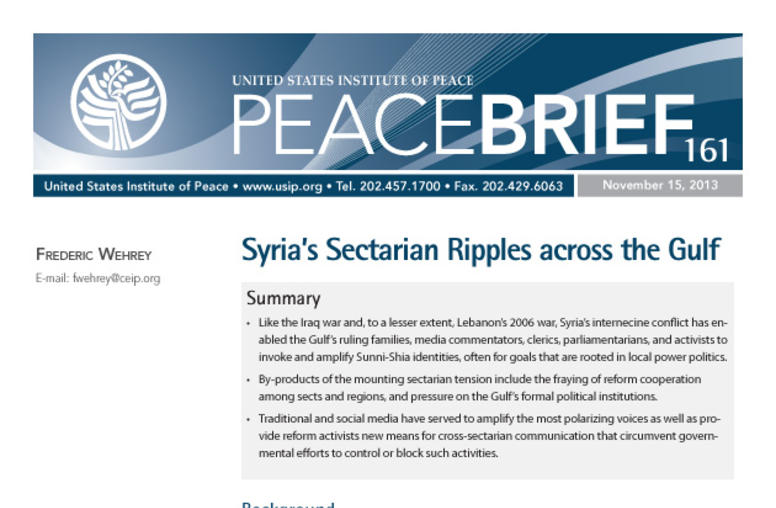
Syria’s Sectarian Ripples across the Gulf
This Peace Brief, one of a five-part series on sectarianism in the Middle East, reviews how the Syrian crisis has affected the Gulf Arab states.
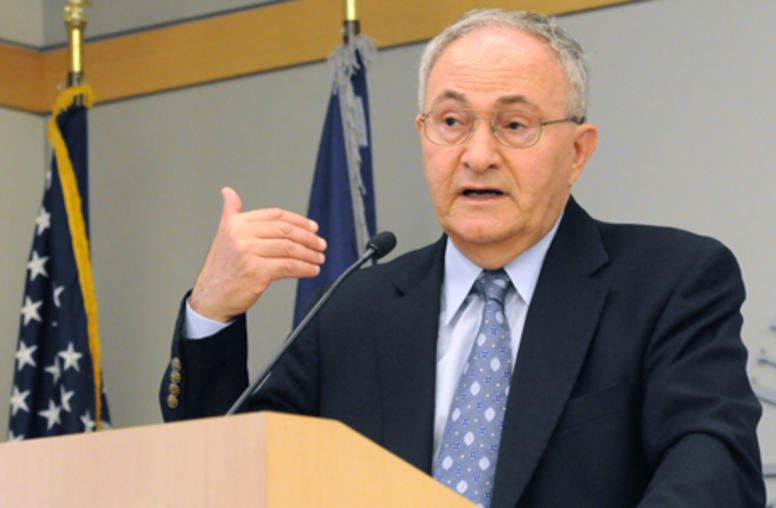
USIP-Wilson Center Series on Arab Spring Impacts Concludes
In the last of a five-part series of papers and meetings on “Reshaping the Strategic Culture of the Middle East,” regional specialist Adeed Dawisha told an audience at the U.S. Institute of Peace (USIP) on June 12 that, contrary to some expectations, no clear political or ideological breach has opened up between the revolutionary states of the Arab Spring and the region’s status quo powers.
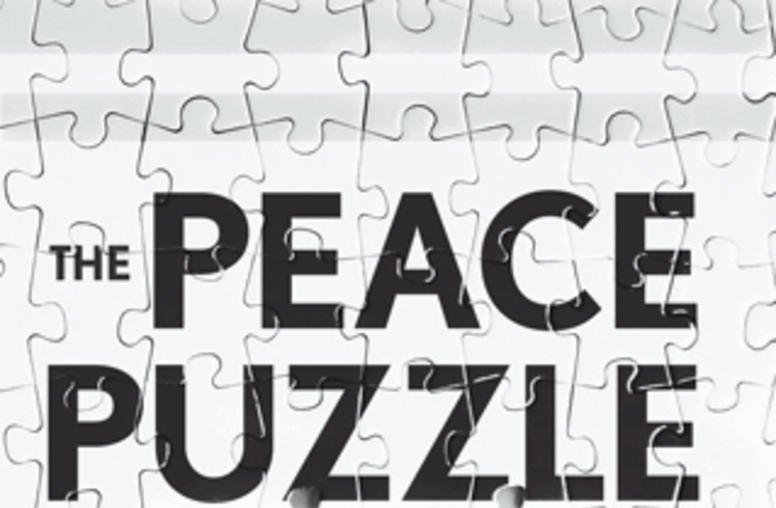
The Peace Puzzle: Appendices and Resources
The last 20 years of American efforts to resolve the Arab-Israeli conflict have seen many more failures than successes. The Peace Puzzle offers uniquely objective account of the American role in the post-Cold War era. In writing The Peace Puzzle, the members of USIP's Study Group on Arab-Israeli Peacemaking had broad access to key policymakers and official archives in their research process, making this book one of few that offers a comprehensive history from the Madrid Conference through the...
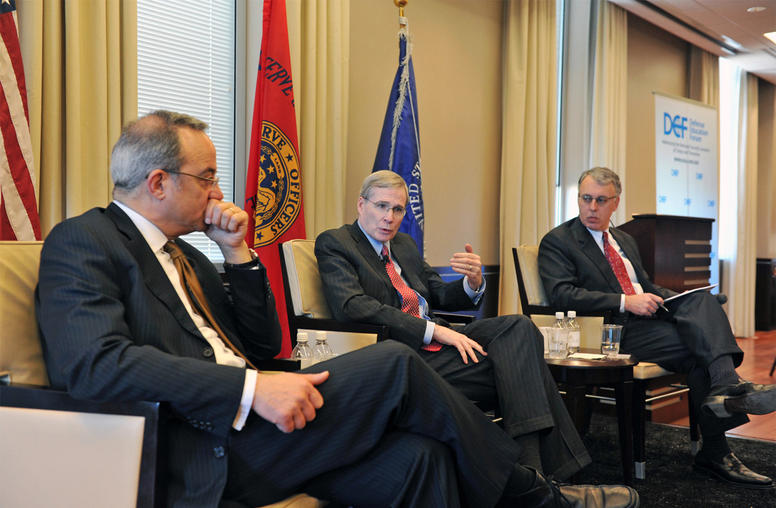
The Arab Awakening and its Aftermath: How to Shape the Path Ahead
USIP's Steven Heydemann moderates a discussion about the Arab Awakening with the Institute's Stephen Hadley and the Carnegie Endowment for International Peace's Marwan Muasher.
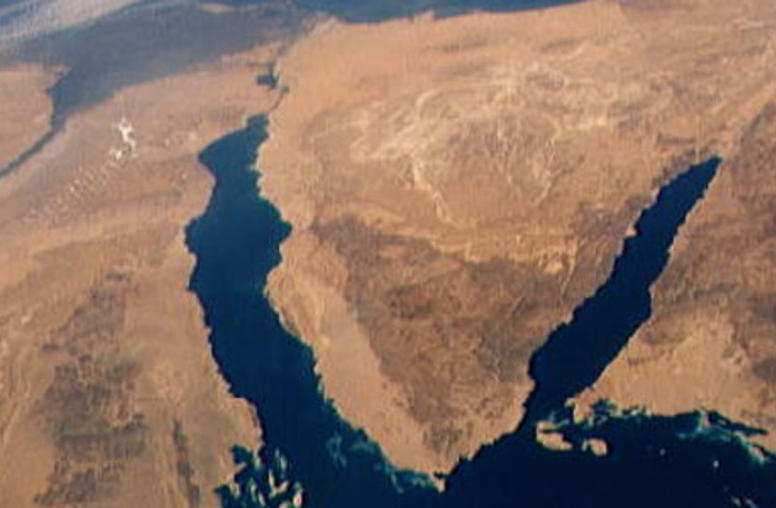
Through a Glass Darkly? The Middle East in 2012
In a period of tremendous change in parts of the world, we are asking USIP leaders, from board members to senior staff and experts, to explain the effects that events abroad and here at home will have on the United States, and the contributions the Institute can and does make. Steven Heydemann is USIP’s senior adviser for Middle East Initiatives.
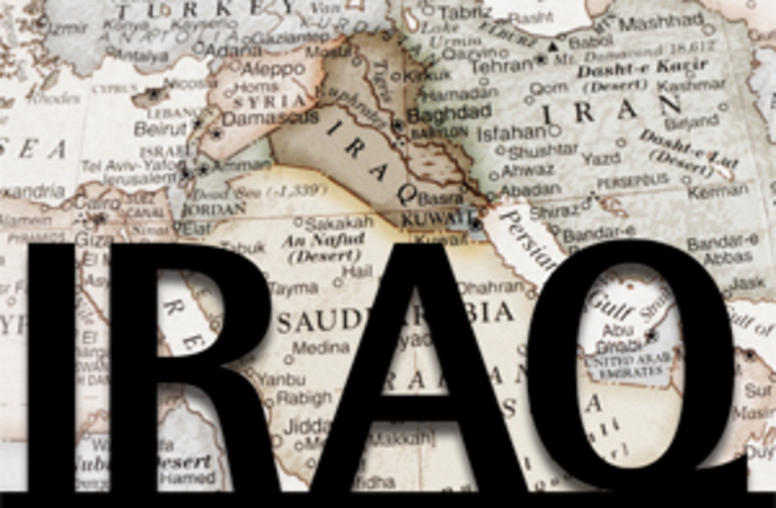
Iraq, Its Neighbors, and the United States
Iraq, Its Neighbors, and the United States examines how Iraq's evolving political order affects its complex relationships with its neighbors and the United States. The book depicts a region unbalanced, shaped by new and old tensions, struggling with a classic collective action dilemma, and anxious about Iraq's political future, as well as America's role in the region, all of which suggest trouble ahead absent concerted efforts to promote regional cooperation. In the volume's case studies, acc...
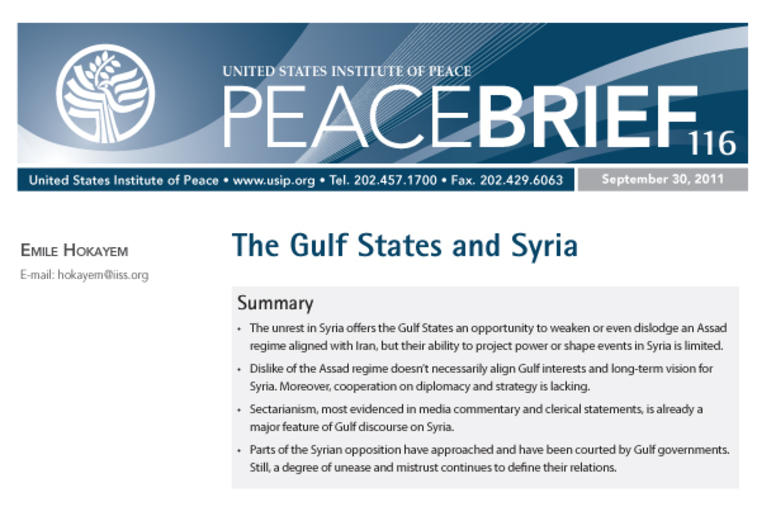
The Gulf States and Syria
The brief examines the interests, connections and dimensions of Syria's popular uprising in the Arab Gulf states. Emile Hokayem is the Senior Fellow for Regional Security at the International Institute for Strategic Studies-Middle East based out of Mamana, Bahrain.
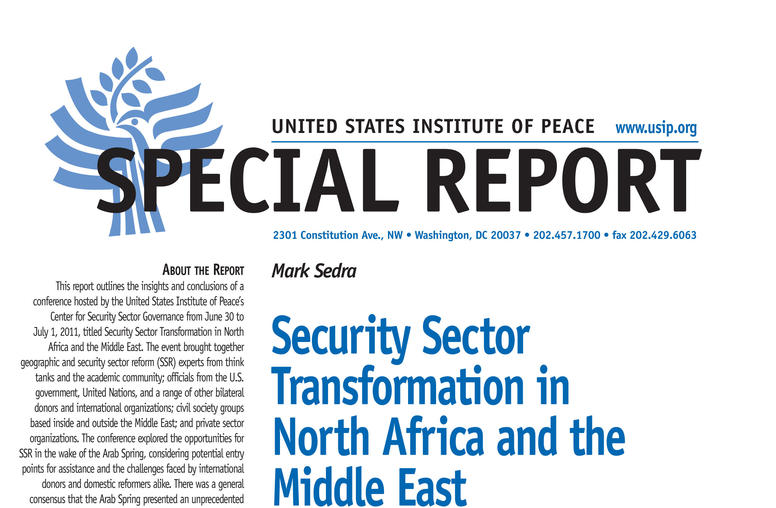
Security Sector Transformation in North Africa and the Middle East
International efforts to help Arab transition countries with security reform must be driven by country requests, involve many partners, and be tied to broader aims for justice, stability, and economic development.
President Obama's Speech and the Arab-Israeli Conflict
USIP’s Scott Lasensky outlines the significance of President Barack Obama’s speech for the Arab-Israeli conflict and U.S.policy.
Arab Spring: Bahrain and Saudi Arabia
F. Gregory Gause III, professor of political science at the University of Vermont, discusses the waves of political protests in the Arab world, particularly in the oil-rich nations, Bahrain and Saudi Arabia.